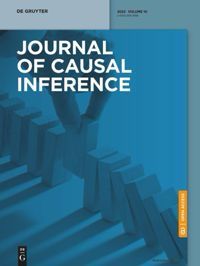Alex Patzina
@patzinaalex.bsky.social
1.3K followers
840 following
58 posts
social scientist @university of bamberg & IAB | research interests: social stratification, life course, health, wellbeing, trust.
https://sites.google.com/view/alexanderpatzina/home
https://orcid.org/0000-0001-5039-7
Posts
Media
Videos
Starter Packs
Reposted by Alex Patzina
Reposted by Alex Patzina
Reposted by Alex Patzina
Reposted by Alex Patzina
Reposted by Alex Patzina
Reposted by Alex Patzina
Hank Green
@hankgreen.bsky.social
· Sep 4
Alex Patzina
@patzinaalex.bsky.social
· Sep 4
Alex Patzina
@patzinaalex.bsky.social
· Sep 4
Reposted by Alex Patzina
Reposted by Alex Patzina
Reposted by Alex Patzina
Per Engzell
@pengzell.bsky.social
· Sep 3
Reposted by Alex Patzina
Reposted by Alex Patzina
Klaus Pforr
@klauspforr.bsky.social
· Aug 19

Rising Educational Divides in Attitudes: How Polarization across Cohorts Can Mask Age-Related Polarization
Article: Rising Educational Divides in Attitudes: How Polarization across Cohorts Can Mask Age-Related Polarization | Sociological Science | Posted August 19, 2025
sociologicalscience.com
Reposted by Alex Patzina
Reposted by Alex Patzina
David Brady
@davebrady72.bsky.social
· Feb 22

The necessity of construct and external validity for deductive causal inference
The Credibility Revolution advances internally valid research designs intended to identify causal effects from quantitative data. The ensuing emphasis on internal validity, however, has enabled a negl...
www.degruyter.com
Alex Patzina
@patzinaalex.bsky.social
· Aug 13
Alex Patzina
@patzinaalex.bsky.social
· Aug 13
Alex Patzina
@patzinaalex.bsky.social
· Aug 13
Alex Patzina
@patzinaalex.bsky.social
· Aug 13
Reposted by Alex Patzina
Klaus Pforr
@klauspforr.bsky.social
· Aug 13

Do Birth Order Effects on Secondary School Track Placement Differ Between Natives and Migrants? A Within-Family Analysis in the German Educational System
Abstract. While existing research has found negative birth order effects on competences and educational attainment in various Western countries with differ
academic.oup.com














